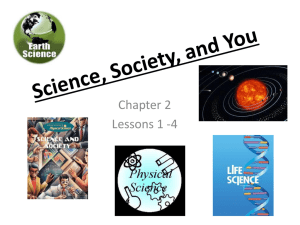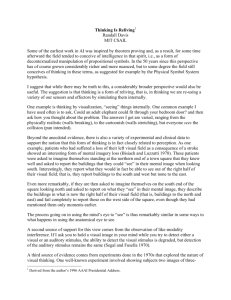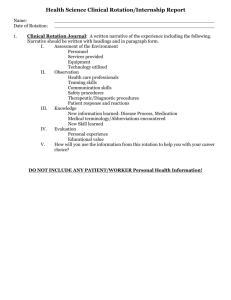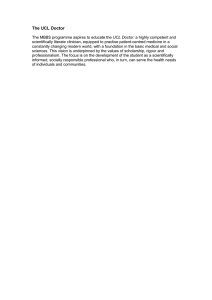BCS II Course 9.012 Foundations of Cognitive Science Study Questions
advertisement
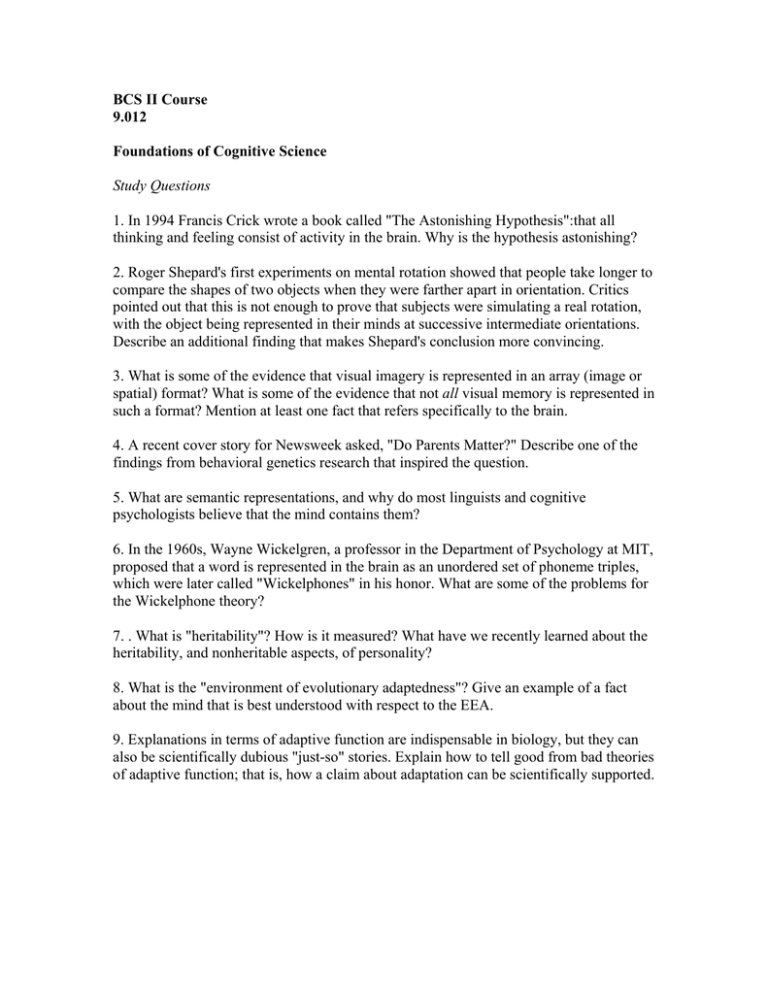
BCS II Course 9.012 Foundations of Cognitive Science Study Questions 1. In 1994 Francis Crick wrote a book called "The Astonishing Hypothesis":that all thinking and feeling consist of activity in the brain. Why is the hypothesis astonishing? 2. Roger Shepard's first experiments on mental rotation showed that people take longer to compare the shapes of two objects when they were farther apart in orientation. Critics pointed out that this is not enough to prove that subjects were simulating a real rotation, with the object being represented in their minds at successive intermediate orientations. Describe an additional finding that makes Shepard's conclusion more convincing. 3. What is some of the evidence that visual imagery is represented in an array (image or spatial) format? What is some of the evidence that not all visual memory is represented in such a format? Mention at least one fact that refers specifically to the brain. 4. A recent cover story for Newsweek asked, "Do Parents Matter?" Describe one of the findings from behavioral genetics research that inspired the question. 5. What are semantic representations, and why do most linguists and cognitive psychologists believe that the mind contains them? 6. In the 1960s, Wayne Wickelgren, a professor in the Department of Psychology at MIT, proposed that a word is represented in the brain as an unordered set of phoneme triples, which were later called "Wickelphones" in his honor. What are some of the problems for the Wickelphone theory? 7. . What is "heritability"? How is it measured? What have we recently learned about the heritability, and nonheritable aspects, of personality? 8. What is the "environment of evolutionary adaptedness"? Give an example of a fact about the mind that is best understood with respect to the EEA. 9. Explanations in terms of adaptive function are indispensable in biology, but they can also be scientifically dubious "just-so" stories. Explain how to tell good from bad theories of adaptive function; that is, how a claim about adaptation can be scientifically supported.
